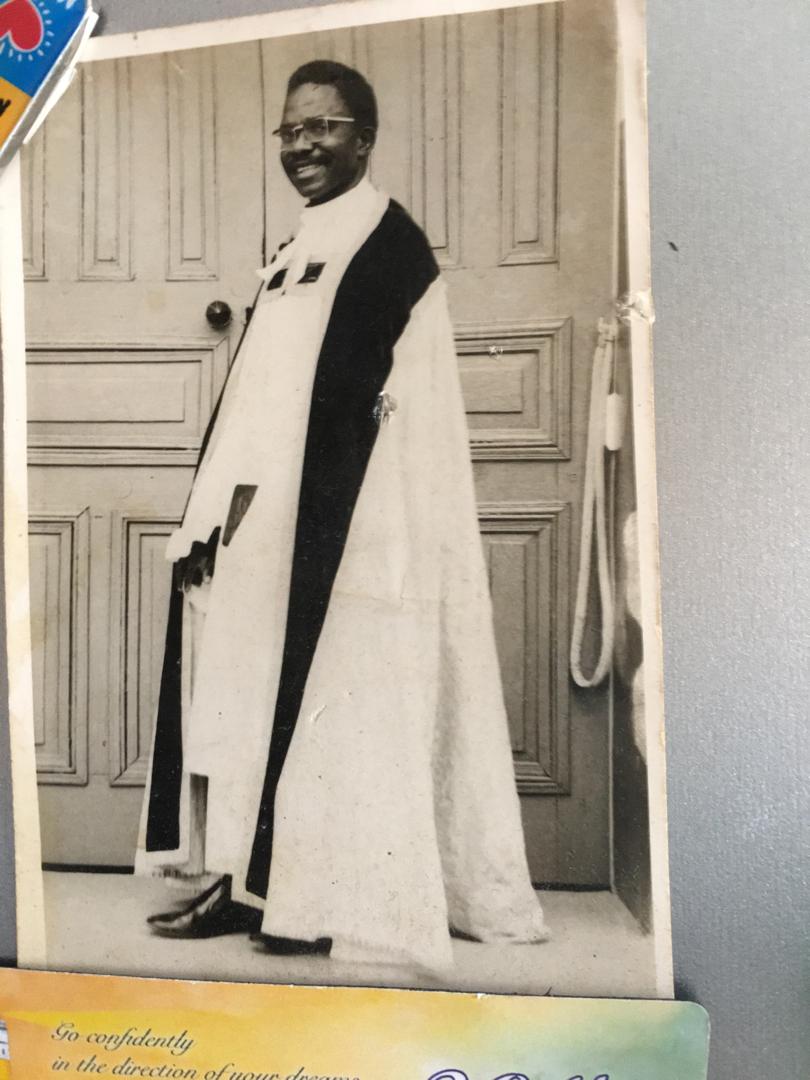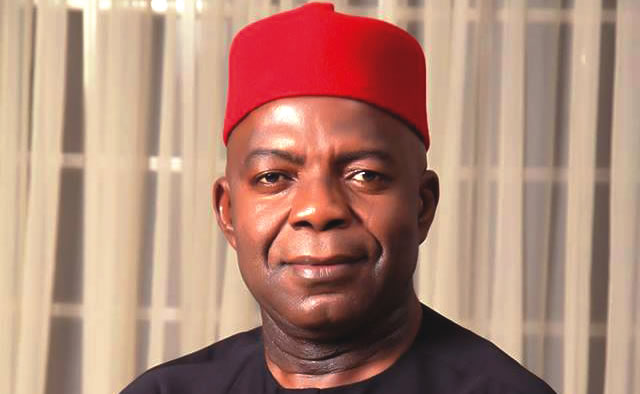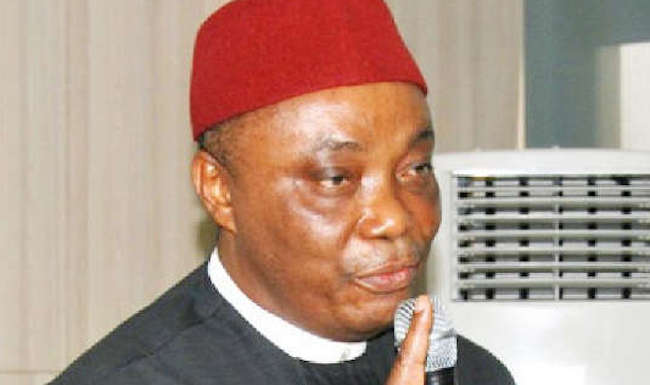By Hon. Femi Kehinde
A man’s good deed and impact on the society will certainly outlive him, centuries after his departure. The Nigerian society would forever be kind to its early pathfinders – Herbert Macaulay, Nnamdi Azikiwe, Ernest Ikoli, Obafemi Awolowo, Samuel Ladoke Akintola, Ahmadu Bello, Tafawa Balewa, Anthony Enahoro, Dr. Kofo Abayomi, Sapara Williams, amongst several others. Venerable Archdeacon Michael Alatake Olupona would certainly find a sweet place in the company of these eminent pathfinders and makers of Nigerian history, particularly in Christian evangelism, and most especially in Anglican liturgy and Anglicanism – The faith which he served until he breath his last, on the 5th of August 1983 at the University College Hospital (UCH) Ibadan.
Anglicanism is a church noted in protest. It was founded in 1534 by King Henry VIII Act of Supremacy, which pronounced the church of England independent of the catholic church in Rome. Today, the Anglican church consists of more than 86 million members worldwide in over 165 countries. Collectively, these national churches are known as the Anglican Communion, meaning all are in communion with and recognize the leadership of the Archbishop of the Canterbury.
Samuel Ajayi Crowther (1809 – 31st Dec 1891) was a Clergyman, and the first African Anglican Bishop of West Africa. He also translated the English Bible to Yoruba Language in 1843. He was a pathfinder that brought in the Anglican church, and placed it on a firm ground in Nigeria. Samuel Ajayi Crowther was consecrated Bishop in 1864, with his seat in Lagos.
Venerable Archdeacon Michael Alatake Olupona was born on the 27th of August, 1924 in Ute, Owo Division to Daniel Olupona, a licensed lay reader and Yeye Olupona. Michael was baptized on December 4, 1931 in Ute, and confirmed on March 17, 1945. He married Henrietta Olalonpe (nee Aderemi) on August 14, 1950, and were blessed with Eight (8) children; Taiwo, Kehinde, Idowu, Alaba, Oluwafiropo, Soledemi, Babatunde and Odunayo, out of which four (4) survived him.
He attended St. Stephen’s Primary School in Ute between 1934 and 1939, and continued at Government School, Owo, from 1940 – 1943, and St. John’s College, Owo, where he trained under the late Bishop I. O. C. Okunsanya for Elementary Teachers’ Certificate Examination (1948 – 1949), and later for the Higher Elementary Course, completing Grade III in 1949, and Grade II in 1955. He was subsequently trained at Melville Hall, Ibadan (now Emmanuel College) between 1956 and 1957.
He had a long and varied career.
Michael was Headmaster at several schools in Ondo, including St. Andrews School, Oke-Igbo in 1950, St. Peter’s School from 1954 to 1955. He was named Deacon in December 1957, and preached his first sermon on the 31st of that year. Five months later, in May 1958, he was Priested, and later attained Cannonry on July 13, 1969 in Ondo Diocese. He became Archdeacon on April 19, 1974.
As a Clergyman, he worked in numerous stations; he served as a Vicar in St. Peter’s Church in Ile-Oluji between 1958 and 1966, during which he was sent to England, and had a one year curacy. After his curacy in England, he returned to St. Peter’s Anglican Church in Ile-Oluji. He was in its Vineyard until 1966. He was Vicar and Chairman of St. Paul’s Anglican Church Igbara-Oke District Council, Ondo State (1967 – 1970), and held the same position at St. Paul’s Anglican Church Idanre District Council, Ondo State, from 1970 – 1971.
As a clergyman in Gbongan, he was the Chairman of the Oke-Osun District Council Church, and First Archdeacon of Oke-Osun Archdeaconry. While in Ile-Ife, he was Chairman, Ife District Council, and Archdeaconry at St. Philip’s Church, Ile-Ife, 1975 – 1981. Finally, while he was an Archdeacon at St. David’s Church Kudeti, Ibadan, Oyo State between 1981 and 1983, where he was also the Synod Secretary for the Ibadan Diocese beginning 1980. He was also the Chairman of the Diocesan Board of Evangelism, and was one of the founders of Operation Good News. He was also a member of the Bible Society of Nigeria.
Michael was also a member of the Oyo State Health Board, and the Chairman Board of Governors of the following Schools; Yejide Girl’s Grammar School, St. Anne’s Girl’s School, St. David’s Grammar School, and St. Luke’s Teachers Training College, Ibadan.
Additionally, he was a former member of the Board of Governors of other schools, including Gboluji Grammar School, Ile-Oluji, Igbara-Oke Grammar School, Olofin Grammar School, Idanre, Gbongan/Ode-Omu Anglican Grammar School, Ife Anglican Grammar School, and Origbo Grammar School, Yakoyo, Ipetumodu, Osun State, and was actively involved in the Boys’ Brigade of Nigeria: as a trained officer, a member of the Executive Council for Oyo, Ogun, and Ondo States, as a member of the National Council of the Boys Brigade of Nigeria.
Venerable Archdeacon Olupona was a man with many special qualities, and has been described by Archbishop Omotayo Olufosoye as a man of prayer and great fortitude; one who believed and taught the faith of the Church as found in the Gospel. He was a man of imagination, able to see and encourage new ways of meeting the needs of his congregation.
A humble man, not puffed up with his own importance, he loved people, “since the love of God must be expressed in a love of God’s Creation and shown in the Joy of it all.” Above all, for his congregation, he was a shepherd of his flock.
Certainly, Venerable Archdeacon Michael Alatake Olupona would in the world beyond find a comfortable place with the pathfinders of Anglicanism in Nigeria – Bishop Samuel Ajayi Crowther, Bishop James Johnson, Bishop Phillips, Bishop Oluwole, Bishop Tugwell, Bishop Alexander Babatunde Akinyele, and so many others.
Venerable Archdeacon Michael Alatake Olupona was survived by Prof. Jacob Kehinde Olupona, Mrs. Soledemi Jaiyeola (Nee Olupona), Barr. Babatunde Olupona, Mrs. Odunayo Aina (Nee Olupona), and grandchildren.
May his humble soul continually find peaceful repose with the Lord, Amen.
Hon. (Barr.) Femi Kehinde, legal practitioner and former member House of Representatives, National Assembly, Abuja 1999 – 2003, representing Ayedire/Iwo/Olaoluwa Federal Constituency of Osun State.

 Business3 days ago
Business3 days ago
 Headline6 days ago
Headline6 days ago
 Headline5 days ago
Headline5 days ago
 National5 days ago
National5 days ago
 Featured3 days ago
Featured3 days ago
 World6 days ago
World6 days ago
 Headline4 days ago
Headline4 days ago
 Headline4 days ago
Headline4 days ago


















